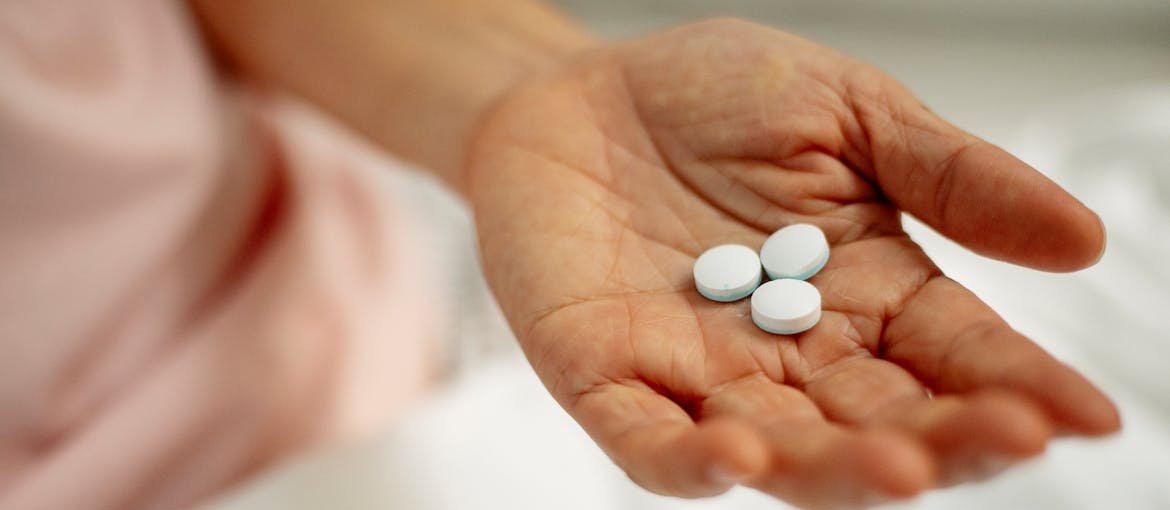Living with OCD is hard enough on its own. When addiction enters the picture, life can feel even more overwhelming. Many people turn to drugs or alcohol to cope with obsessive thoughts or compulsive behaviors, but that often makes symptoms worse. If you’re searching for answers, know that effective help is out there. OCD and addiction treatment works best when both conditions are treated together through integrated care. This approach helps you manage symptoms, avoid relapse, and build a healthier future. At Harmony Ridge Recovery Center WV, programs are designed to support mental health and recovery at the same time. You don’t have to face this battle on your own. With the right treatment and support, lasting recovery becomes possible.
Understanding the Link Between OCD and Addiction
Living with OCD while also battling addiction can feel overwhelming. The two conditions are deeply connected and often make each other worse. When obsessive thoughts become too much, substances can look like an escape. Sadly, this short-term relief often creates long-term problems. To better understand the relationship, it’s important to see how OCD symptoms push people toward substance use, what shared risk factors exist, and why the disorders so often appear together.

How OCD Symptoms Contribute to Substance Use
OCD brings repetitive thoughts and compulsive behaviors that can consume daily life. Some people reach for drugs or alcohol to quiet the mental noise. The temporary relief can feel like freedom, but it rarely lasts. Addiction soon adds new problems, making OCD harder to manage.
Families often struggle too, wondering how to support a loved one living with OCD while also dealing with substance use. It takes patience and proper treatment to break the cycle. This is why OCD and addiction treatment must focus on both conditions at the same time. Without that, recovery is harder, and relapse is more likely. Proper care gives people tools to manage OCD and live free from substance dependence.
Shared Risk Factors in OCD and Addiction
Several risk factors overlap in OCD and addiction, which explains why the two so often occur together:
- Genetics: Family history increases vulnerability.
- Brain chemistry: Imbalances affect both anxiety and substance cravings.
- Trauma: Past experiences make both conditions more likely.
- Stress: High stress levels can trigger OCD and substance use.
- Mental health disorders: Depression and anxiety raise risks for both.

Why OCD and Addiction Often Co-Occur
OCD symptoms create high levels of stress, and substances may seem like an easy coping tool. Over time, people begin to depend on alcohol or drugs, which then worsens OCD symptoms. This cycle makes both conditions harder to treat. Families often wonder, does addiction worsen OCD? The answer is yes, and it can happen quickly.
That’s why treatment centers with dual diagnosis care are so important. A trusted option like a rehab center New Lexington OH has provides integrated support that addresses both problems. With the right care, people can learn healthier ways to cope and move forward in recovery. OCD and addiction treatment gives hope and a clear path toward healing.
Getting Professional Rehab and Mental Health Support
When someone faces both OCD and addiction, professional care is often the turning point. Treating one without the other leaves gaps, and relapse becomes more likely. Dual diagnosis programs are designed to handle both conditions together. They provide medical support, therapy, and ongoing care for long-term results. To see what this looks like, it helps to understand how to find the right rehab, what treatment usually involves, and how insurance can play a role.
Finding a Dual Diagnosis Rehab Program
Choosing the right program matters because not every facility specializes in both conditions. Programs that only treat addiction may miss OCD symptoms, leaving recovery incomplete. The same goes for centers focused only on mental health. The best option is a rehab that blends both approaches.
For example, a program may include therapy for OCD while addressing detox and addiction recovery needs. Some facilities also provide specialized programs, such as alcohol rehab for seniors, which can help older adults who face unique challenges. OCD and addiction treatment works best when tailored to the person, their history, and their long-term needs.

What to Expect in Integrated Rehab
An integrated rehab program addresses mental health and substance use at the same time. Treatment plans usually include detox, therapy, medication management, and relapse prevention strategies. People often enter feeling nervous, but most realize quickly that the support is structured to build real progress.
Staff focus on both recovery and mental wellness so clients can gain balance. Many facilities, such as long term drug rehab WV, offer extended programs for those who need more time to stabilize and rebuild. A combined plan is key to managing OCD during addiction rehabilitation, giving people tools that last far beyond the initial stay. Knowing what happens in rehab can reduce fear and uncertainty. Here are some parts of integrated programs that support recovery:
- Medical detox with professional monitoring
- Therapy sessions for OCD and addiction
- Family support and education
- Relapse prevention strategies
- Long-term aftercare planning
Insurance and Accessibility for Dual Diagnosis Care
Paying for treatment is one of the first concerns families face. Fortunately, many insurance providers now include coverage for dual diagnosis care. This makes programs more accessible and gives people a chance at recovery without overwhelming financial strain. For example, some plans provide humana rehab coverage, which can reduce costs for those seeking treatment.
Checking benefits early helps avoid surprises and gives families peace of mind. When cost barriers are lowered, people can focus fully on recovery instead of worrying about bills. OCD and addiction treatment becomes more achievable when the right financial support is available. Getting help is always worth it.

The Importance of Integrated Care in Dual Diagnosis
OCD and addiction treatment works best when both conditions are addressed together. Focusing only on addiction may leave OCD untreated, leading to relapse. Treating OCD without addressing substance use creates the same risk. Integrated care builds a full recovery plan that targets both sides of the problem. This approach improves outcomes, strengthens coping skills, and makes recovery more sustainable. To see why it matters, let’s look at coordinated treatment, evidence-based therapies, and holistic approaches.
Coordinated Treatment for Both Conditions
When care teams work together, recovery is stronger and more lasting. OCD’s role in substance abuse treatment is significant, and it can’t be ignored. That’s why dual diagnosis programs combine mental health and addiction support in one plan.
A team of doctors, therapists, and counselors focuses on every aspect of recovery. This coordination makes it possible to address OCD triggers in addiction treatment while building relapse prevention strategies. Integrated care works best when multiple forms of support come together. These are the main parts of coordinated treatment:
- Psychiatric support and medical care
- Counseling focused on OCD and substance use
- Group therapy with others in dual diagnosis recovery
- Skills training for stress and anxiety management
Evidence-Based Therapies That Work
Therapies proven to treat both OCD and addiction make a big difference. Cognitive Behavioral Therapy and Exposure and Response Prevention help reduce obsessive thoughts and compulsions. At the same time, addiction-focused therapies strengthen relapse prevention. Including family therapy for addiction also improves outcomes by creating support systems at home.
These approaches give people tools to handle daily life without relying on substances. They also address OCD impact on addiction recovery, which is often overlooked. With evidence-based care, progress is measurable and lasting. This makes OCD and addiction treatment far more effective in the long term.
Why Holistic Approaches Help
Beyond therapy and medication, holistic methods play a valuable role in recovery. Stress is one of the biggest triggers for both OCD and addiction, and holistic therapy for addiction helps reduce it. Mindfulness, yoga, and exercise provide healthier coping tools. Good nutrition and sleep routines also support mental wellness.
These practices may seem simple, but they help people feel more balanced and stable. For many, they become long-term habits that improve quality of life. The effects of OCD on addiction recovery are real, but with holistic care added to therapy, those effects can be reduced. This makes healing more complete and sustainable.

Challenges of Treating OCD and Addiction Together
OCD and addiction treatment is never simple. Both conditions influence each other, and that makes recovery more complex. People often feel stuck in a cycle where OCD fuels substance use, and addiction makes OCD worse. Without the right approach, symptoms grow stronger and relapse becomes more likely. To understand why integrated care matters, it’s important to look at the biggest challenges: misdiagnosis, medication management, and the risks of leaving both conditions untreated.
Misdiagnosis and Overlapping Symptoms
One of the hardest parts of treatment is recognizing both disorders early. Addiction can hide OCD symptoms, while OCD may be mistaken for anxiety or depression. This delay prevents people from getting the right care. Families often ask, how does OCD affect addiction treatment?
The truth is that untreated OCD makes relapse more likely. Accurate diagnosis is the first step toward recovery. With the right support, managing OCD during addiction rehabilitation becomes easier, and healing feels more possible. This is why programs designed for dual diagnosis are so important.
Medication Management Issues
Medication is often part of treatment for OCD and addiction, but it comes with challenges. Certain antidepressants or anti-anxiety medications can help OCD, but they must be balanced with addiction recovery needs. People in detox or early sobriety may respond differently to medications. A good care team monitors these changes closely. This makes OCD and alcohol addiction treatment more effective and safer in the long run. Balancing medication for OCD and addiction takes careful planning. A strong care team will often focus on these key areas:
- Monitoring for side effects during detox
- Balancing psychiatric and addiction medications
- Adjusting doses as recovery progresses
- Avoiding drugs with a high risk of dependence

Risks of Untreated Co-Occurring Disorders
Leaving OCD or addiction untreated carries serious risks. OCD symptoms can push people back toward substance use, while addiction makes OCD worse over time. The question does addiction worsen OCD has a clear answer: yes, and it can slow down recovery.
Without care, both conditions spiral, leading to health problems, strained relationships, and relapse. Integrated treatment reduces these risks by tackling both at once. OCD’s role in substance abuse treatment cannot be overlooked if long-term recovery is the goal. With the right program, OCD and addiction treatment creates hope and builds real change.
Building a Support Network After Treatment
Recovery doesn’t end when rehab is over. Long-term success often depends on the strength of your support system. Family, friends, and peers can play a big role in keeping you grounded. Joining support groups helps you stay connected with others who understand the struggle. Many people also work with sponsors or mentors who provide guidance during tough times.
Staying involved in aftercare programs builds accountability and reduces relapse risk. For some, ongoing therapy sessions are needed to manage symptoms and maintain progress. Others benefit from community-based programs or sober housing that provide structure. These resources make it easier to handle OCD triggers in addiction treatment and prevent setbacks. With the right network, OCD and addiction treatment feels more achievable and recovery feels less lonely.
OCD and Addiction Treatment Can Change Your Life
Living with both OCD and addiction can feel exhausting, but recovery is possible with the right support. You don’t have to manage two difficult conditions on your own. Integrated care focuses on treating both issues at the same time, giving you a better chance at long-term stability. Therapy, medical support, and ongoing guidance can help you manage symptoms and reduce relapse risk. If you’ve been searching for a way forward, now is the time to act. OCD and addiction treatment is most effective when it addresses mental health and substance use together. Reaching out for help is a strong step, not a sign of weakness. With the right program and support system, you can take control of your health and build a better future.



